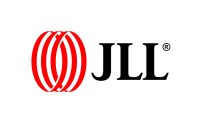What hotel owners must know for operational preparedness

Franchising is gaining traction in Southeast Asia, presenting both opportunities and challenges for hoteliers.
Hotel franchising is rapidly emerging as a viable business model in Southeast Asia’s hotel real estate market, offering local and regional hotel owners an avenue for growth and resilience in the wake of the pandemic.
In Southeast Asia, the number of hotels operating under franchise agreements has doubled over the past decade rising from 3 percent of the market to 6 percent in 2024.
Gaining momentum in Southeast Asia
While this remains a modest proportion of the overall market, franchise agreements have proven to be a winning formula elsewhere, attracting hotel owners seeking to tap into the reputation and expertise of renowned brands to drive distribution through their network and their loyalty programmes. This trend has been driven further and faster by major hotel brands like Marriott International, Hilton Worldwide, Wyndham Hotels & Resorts, Choice Hotels International, and Intercontinental Hotels Group, shifting towards an asset-light strategy.
Despite growth in the US and Europe, the model remains in its infancy in Southeast Asia, hampered by the region’s fragmented hotel market, which is made up of numerous small local owners, a lack of options for third-party operators as well as regulatory and legal barriers .
Management contracts are the dominant model of hotel ownership across the region but they often result in disparate operational standards and inconsistent branding.
But before embarking on a franchising deal, hotel owners must grasp the complexities involved and there are some key considerations.
- Balance independence with brand recognition
Balancing operational independence with the franchisor’s brand benefits is paramount for hotel owners. While retaining control over talent and cost management is crucial, tapping into the brand’s global and regional programs, such as access to global Request for Proposals (RFPs) and loyalty programs, can significantly enhance the bottom-line. Whilst we see more owner-operators venturing into this space, they will need to ensure their current operational team can adapt acquiring new knowledge and expertise. Be in subscribing to optional commercial support from the brands to bringing in third-party operators or operational consultants /asset managers. - Use asset enhancement initiatives (AEIs) to stand out
Franchise agreements offer owners an opportunity to potentially negotiate relevant AEIs with the franchisor that align with brand standards. This grants owners the freedom to spruce up their assets and differentiate themselves in the market while upholding the brand’s reputation and integrity having that market insights on trends that present low hanging fruit opportunities. - Use data to analyse progress and market position
Regular benchmarking against industry standards is essential for hotel owners to assess their performance and identify areas for improvement. Analysing key revenue and operational metrics helps owners to make informed decisions that can improve their competitiveness and profitability, and keeps hotel owners ahead of the curve. - Streamline operations with multiple franchise hotels
Transitioning from managing hotels to franchising them can unlock efficiencies across a portfolio of properties, particularly by consolidating operations under an experienced management team. Centralising operations under a single General Manager (GM), or commercial teams across hotels for example, and delegating day-to-day tasks across multiple properties streamlines communication, aligns processes and can ultimately reduce costs. This also allows franchised hotel owners to attract higher value talent across their portfolio. Exploring this in greater detail, including cross-training and multi-skilling, and back-office clustering across different business functions are areas where some brand-operated hotels may not be able to capitalise on. - Seek alignmentSuccessful franchise agreements between brands, operating entities and owners require significant alignment. This is critical to ensure owners are maximising the value of the franchise arrangement, drive operational autonomy and efficiencies, create ongoing value through, unique AEIs whilst being brand compliant. An internal or external governance/asset management structure managing and overseeing see this would be key to consider.
As the hospitality industry anticipated to rebound in 2024, with revenue per available room (RevPAR) recovery reaching 93% of pre-pandemic levels in the APAC region in 2023, investor interest in hotel investments is on the rise. Thailand, in particular, is poised to embrace hotel franchising, seizing opportunities accelerated by the COVID-19 crisis.
We are confident that hotel owners across Southeast Asia. will consider more of such opportunities as we notice the markets evolve, yet readiness is paramount to unlock the potential.



